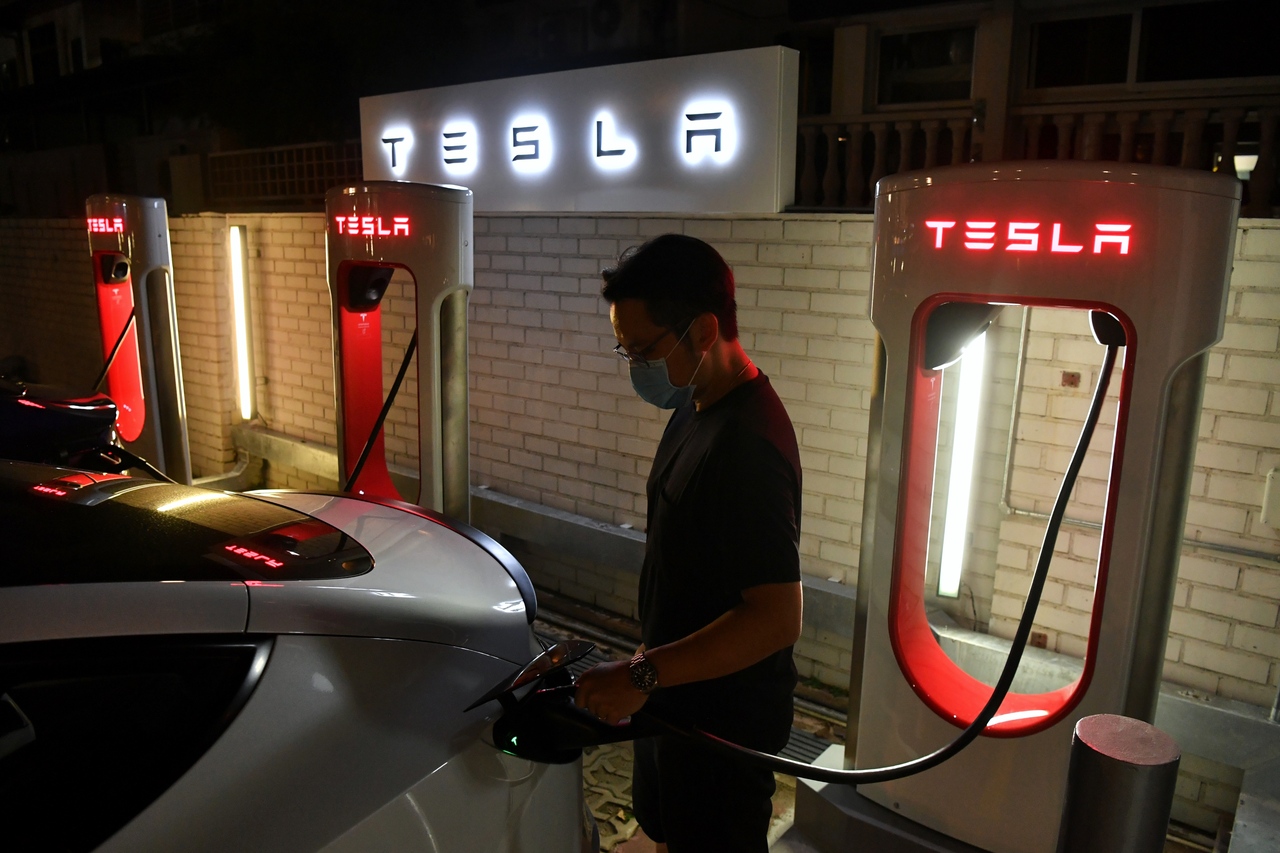$30 million in rebates given out last year under EV early adoption incentive scheme
Sign up now: Get ST's newsletters delivered to your inbox

A total of 1,636 electric cars and taxis registered in 2021 benefited from the rebates under the scheme.
ST PHOTO: CHONG JUN LIANG
SINGAPORE - About $30 million in rebates were doled out last year to encourage car and taxi owners to switch to electric vehicles (EVs), said Transport Minister S. Iswaran on Monday (Jan 10).
A total of 1,636 electric cars and taxis registered in 2021 benefited from the rebates under the Electric Vehicle Early Adoption Incentive scheme, which was announced during Budget 2020 and kicked in from January last year.
The scheme, which will be available until Dec 31, 2023, gives buyers of fully electric cars and taxis a rebate of up to 45 per cent on their additional registration fees, capped at $20,000.
This applies to both individual and fleet vehicle owners, such as taxi and car rental companies.
The rebate was introduced to lower the upfront cost of an electric car, which cost about 78 per cent more than an equivalent internal combustion engine car in 2020.
EV buyers would save an average of 11 per cent with the rebate.
The Land Transport Authority (LTA) had said then that the scheme was expected to cost the Government an estimated $71 million over three years.
In written replies to parliamentary questions filed by Mr Melvin Yong (Radin Mas), Mr Sharael Taha (Pasir Ris-Punggol GRC), Ms Cheryl Chan (East Coast GRC) and Workers' Party's Dennis Tan (Hougang) on Monday, Mr Iswaran said the proportion of electric cars and taxis registered here rose from about 0.2 per cent in 2020 to roughly 4.4 per cent last year.
In particular, the second half of 2021 saw 1,400 new electric car registrations.
This made up 7.2 per cent of total new car registrations during this period.
Meanwhile, about 300 new EV charging points were installed here by commercial operators in the past year, bringing the total to about 2,200.
More than 600 charging points will be rolled out at public carparks this year under a joint tender by the LTA and the Urban Redevelopment Authority, on top of others that will be installed in locations such as private residences, shopping malls and petrol stations.
Mr Iswaran said: "LTA will continue to monitor EV adoption trends and accelerate the deployment of our EV charging network where necessary to meet our 2030 target of 60,000 charging points islandwide."
This target, which comprises 40,000 chargers at public car parks and 20,000 chargers at private premises, has been assessed to be sufficient to meet expected EV charging demand based on the projected EV population in 2030, he added.
This is because a typical electric car will only require a full charge roughly once a week, Mr Iswaran said.
However, to support EV charging, more than 1,000 switch rooms and 900 substations here will need to be upgraded.
LTA is working with the Energy Market Authority and the Housing Board to assess the pace and extent of upgrades that will be needed.
The Government will work with EV charging operators to develop solutions for areas where there is strong charging demand, the minister added.
"We will also review and update our charging point deployment plans based on actual adoption rates."
As Singapore transitions to EVs, automotive workers here will need to pick up new skills.
"Although this is a medium-term transition, the Government is already working with industry partners to step up support for our workers," said Mr Iswaran.
For example, the Singapore Motor Workshop Association Training Academy will train at least 1,000 automotive workshop technicians over the next three years to maintain EVs, with support from Enterprise Singapore, Workforce Singapore and JTC Corporation.


